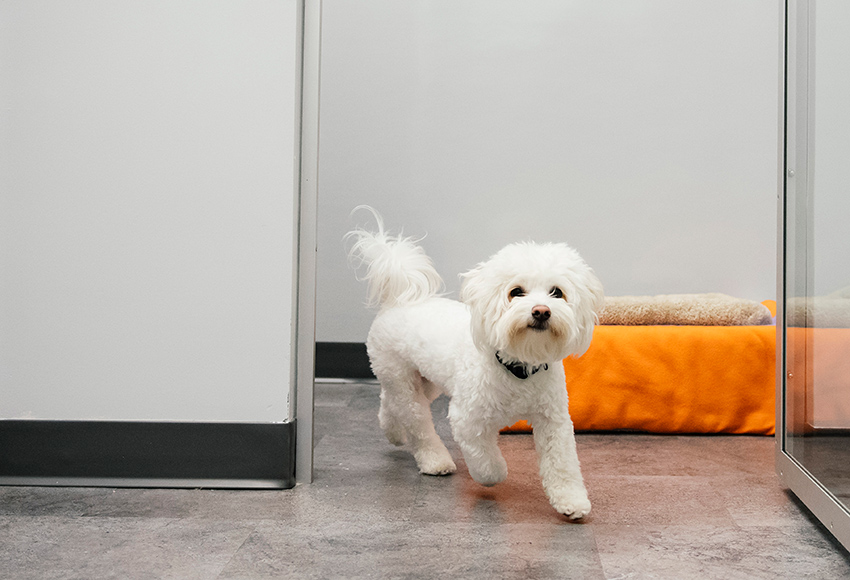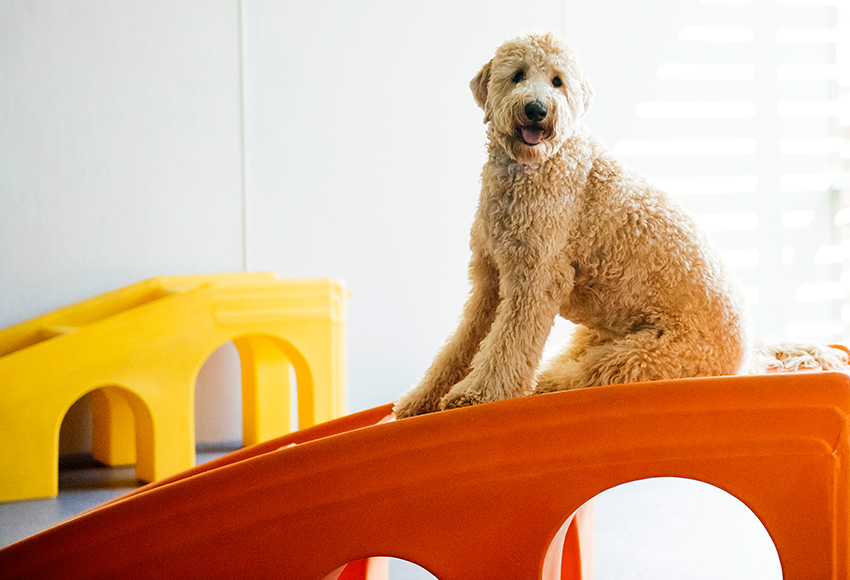Is My Dog Ready for Pet Therapy?

Frequently when we are in the field at an engagement, Boomer and I will hear folks say, “I wish my dog could do this” or “I would love to take my dog to visit people”. It’s very common to hear these comments when they are engaging a pet therapy dog. People wonder if their dog can handle pet therapy.
It does raise a great question – what dogs are able to handle therapy work?  Much like service dogs – not every dog can be a service dog. And not all dogs can become therapy dogs. It is a career that works for only a subset of pups.
Much like service dogs – not every dog can be a service dog. And not all dogs can become therapy dogs. It is a career that works for only a subset of pups.
Before I go any further, I will preface that if you think your pup might be good at dog therapy, then seek out a local expert and as their opinion. These experts will most likely be more than happy to help you out and do a quick assessment.
I am not an expert therapy dog trainer, but I have spent enough time in the field to get a sense for what to look for in a dog that might be fit for therapy. Here is a list of questions to ask about your dog:
- Does your dog jump up on people when they are excited or see new people?
- Does your pup lick individuals in exciting or anxious moments?
- Does your dog become very excited and difficult to control with a lot of movement or stimulation around them?
- When you take them out in public, does your dog they have their tail tucked under, cower, or seem anxious?
If you answered “no” to most or all these questions, you just might have a candidate for pet therapy (and again, seek out a local expert for a deeper assessment).
The age of the dog will have a huge impact on their ability to handle pet therapy. As you might imagine, an 8-month-old puppy is likely not ready for pet therapy based on those simple questions – they have high energy, are jumping around and just want to play. But that same dog at the age of 6 years old may have matured to a level that they are now ready for the work. Quite often, therapy dogs tend to be older in age and have matured into this line of work.
As an example, when Boomer was 6 months old, a trainer suggested to me to think about pet therapy. He saw in Boomer a dog that, even at that young age, did not jump on people, was calm and immediately leaned into people for petting. These were all clear signs that he was wired for pet therapy work. Now, he is very much the exception to the rule as he was showing signs at a young age (and he was certified at the age of one). I will also call out that his participation in dog daycare at Dogtopia helped immensely early on. It taught him social skills, interaction with people, and how to behave around other dogs.
I also get the question of breed. Dog therapy does not breed discriminate. These organizations will take any dog breed or mix that can handle the certification testing and demonstrate the skills necessary to be a pet therapy animal. But you should factor in that some breeds may be pre-dispositioned to be better at this line of work than others. A higher-energy breed, such as a Pointer or Aussie, may not be ready at a younger age to do the work. As they mature and grow older, their energy level may come into the proper range to allow them to successfully handle this line of work. I will never write off any breed or mix. Just keep in mind the characteristics of the breed and how that could impact the outcome.
Is your dog ready? Use those 4 questions to help gauge where they are at. And seek out a local pet therapy expert or trainer to give you a quick assessment before you jump into the certification process.







